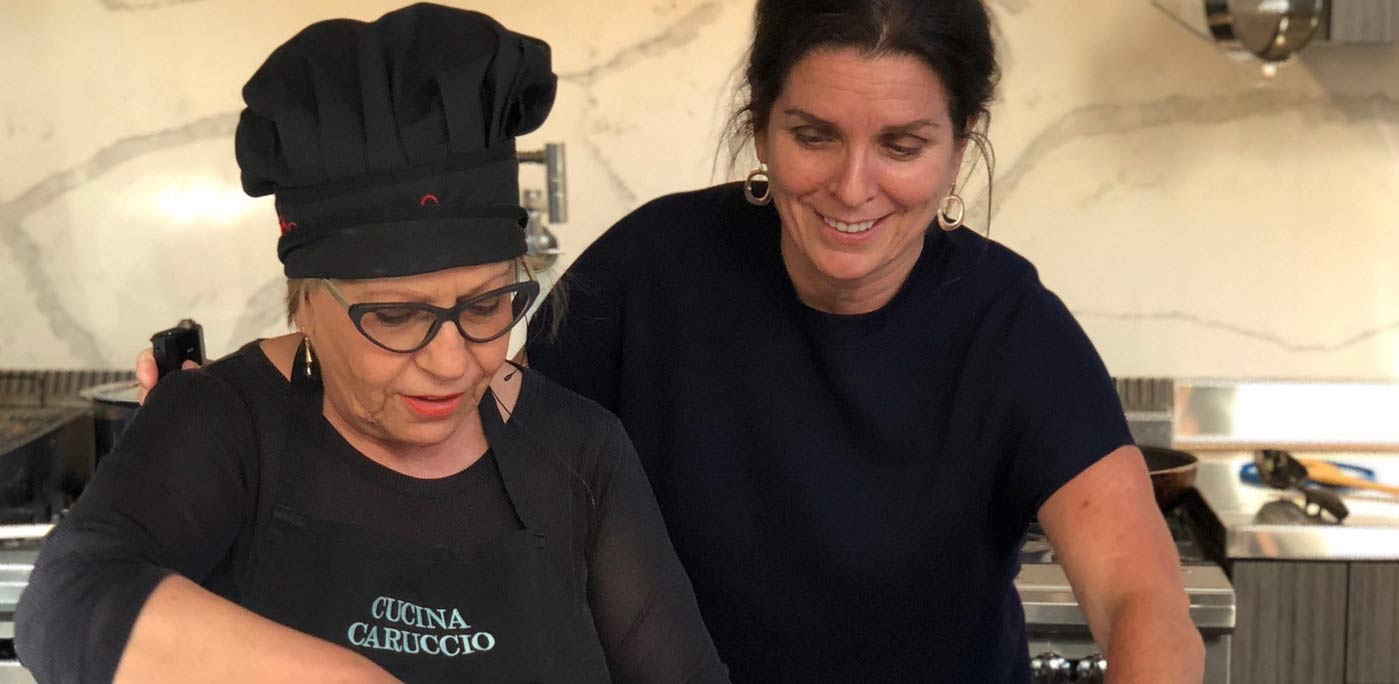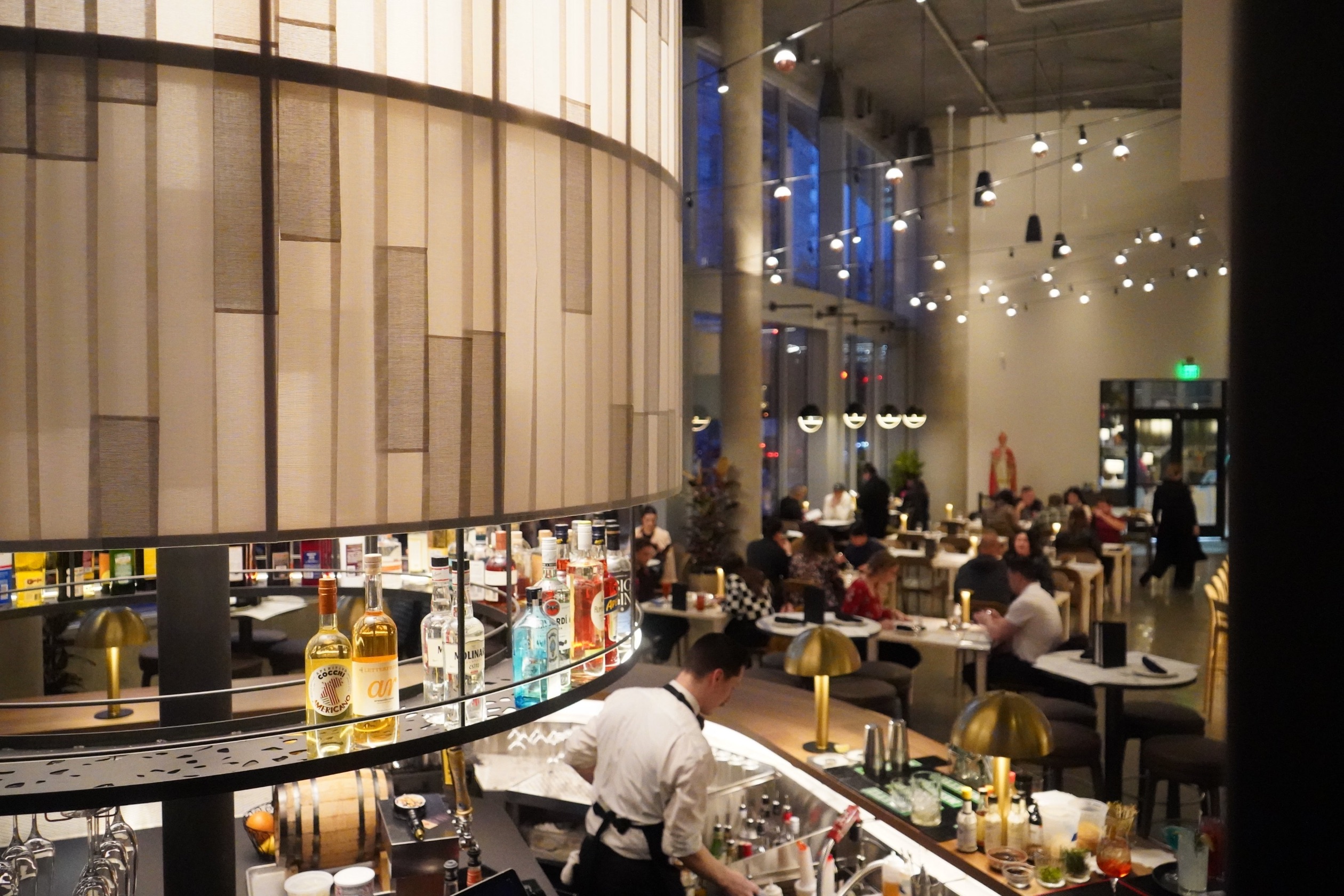Maria Lucia Luongo is a woman who takes joy in the simple pleasures of life: cooking, fashion, yoga, friendships.
For the past 70 years, life’s twists and turns have taken her from her roots in Naples to the city of Perugia, where she has lived since 1993. Along the way, she spent three years as a lecturer in Italian language and literature at Canberra’s Australian National University and two years teaching at New York University and Queens College. She is currently a professor of the history of Italian food at the Pieve International School in Perugia.

Spurred by a surprise discovery of hand-written family recipes, Maria Lucia Luongo set out to preserve them for future generations in her new book “Cucinaria.”
Recently, she visited the Northwest as part of a promotional tour for her new book, Cucinaria: Letters from the Kitchen, published in 2018 by Morlacchi. Luongo held two culinary workshops in Seattle in May that explored the food and stories of her home town of Naples.
The idea for the book came from a surprise discovery Luongo made in 2003. While cleaning out some drawers, she found an old album with a worn leather cover. Inside was an assortment of fragile, yellowed papers, some with edges torn, others stained with ink.
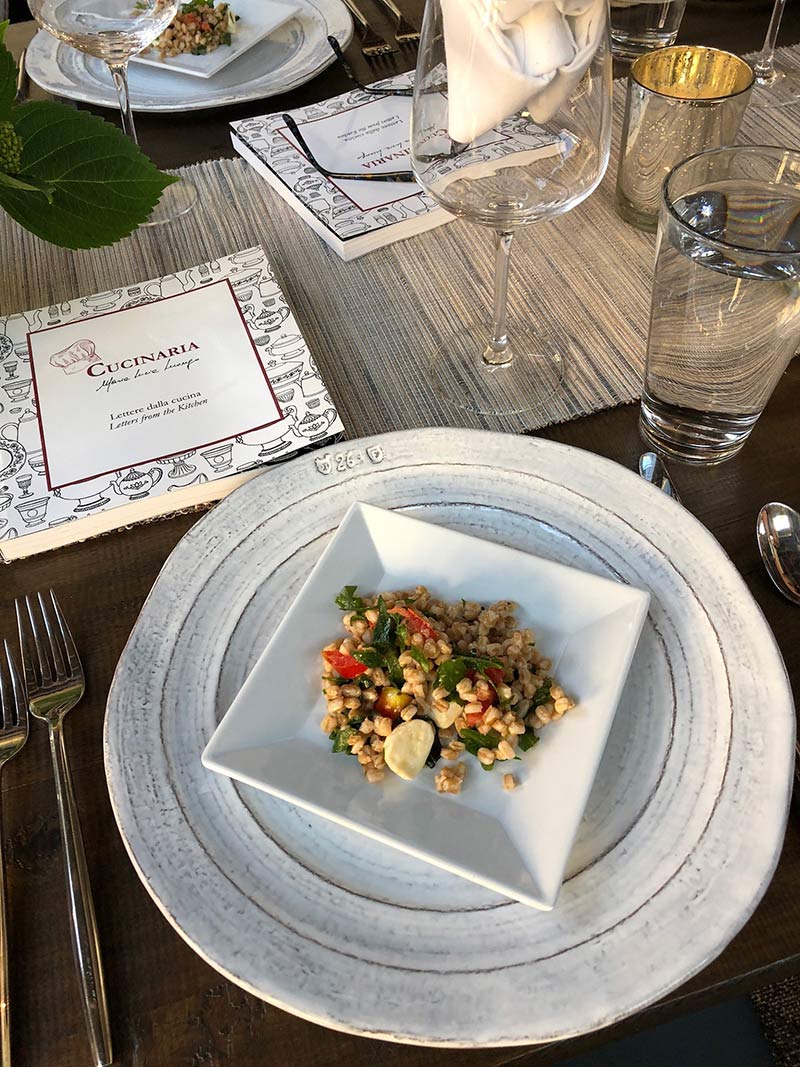
Recipes such as lasagna, timbale and zucchine trifolate are included in the new cookbook “Cucinaria.”
“At first I thought they were love letters written by my parents,” she said. “Then I saw they were recipes. A century ago, of course, there was no email, no Internet. To stay connected, people would write out and share recipes. I was afraid the samples I found would not last long, they were so fragile, so I transcribed them and published them for my own use, just to preserve them.”
The recipes were written by three women who played important roles in Luongo’s life: her mother Nina; a neighbor from her childhood days, Esther; and a family friend, Maria. The recipes, notes and snippets of culinary advice from these three women form the basis of “Cucinaria.”
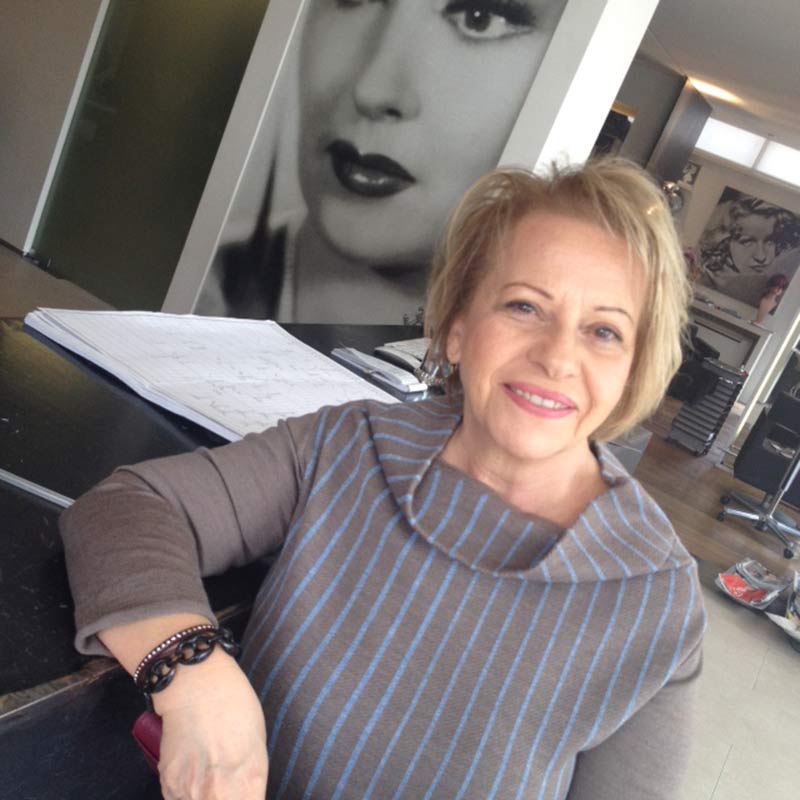
Maria Lucia Luongo’s new book, “Cucinaria,” preserves the recipes of three Neapolitan women who played important roles in her life
“These recipes revealed the stories and sentiments of my family and of women who passed through our homes and our lives for the past 100 years,” Luongo wrote in the book’s foreword. “My inspiration in collecting and recording these recipes is to listen to their voices and preserve their culinary legacy.”
The book describes Nina as a creative cook who relished her role in the kitchen and never prepared the same dish twice. Esther came from a prosperous family and was particularly skilled in pasta making. With Maria, who was 70 years old when Luongo met her, the two women shared conversations about food and cooking.
“Although the recipes tell the story of these women, in reality the recipes themselves are not key,” said Luongo. “What I wanted to do was preserve the lives and histories of these women who were so important to me, and in doing so, to preserve the special culinary flavors of Naples.”
Luongo, who turns 70 this year, has a long and distinguished career as a teacher and journalist. She received her undergraduate degree from the University of Naples and a master’s degree in intercultural education from the University of Rome. She has co-authored several textbooks and has written for fashion magazines from Donna to Mondo Uomo.
Maintaining connections with family and friends is important to Luongo. Her husband died young, leaving her with two teenage sons. “It was hard to manage with two kids alone in a big town like Naples,” she said. “I was a free-lance journalist at the time but that is not a good life for a single mother. So I returned to my earlier career: teaching Italian language and literature.”
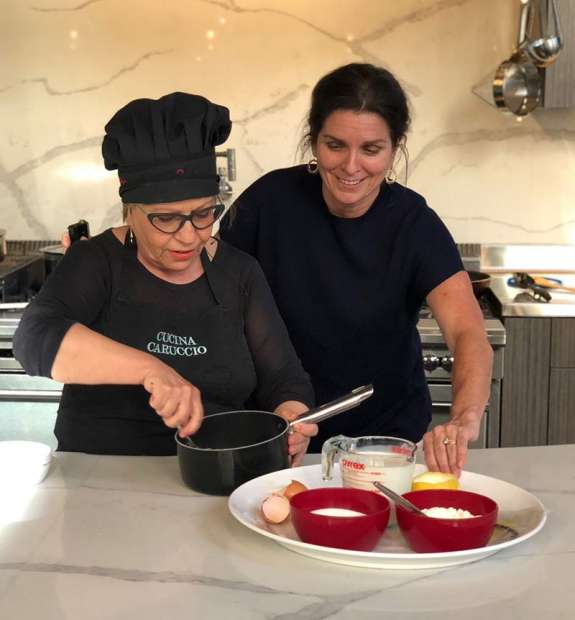
Luongo (left) led two culinary workshops in Seattle, where she created a four-course dinner while discussing the food and stories of Naples
She moved to Perugia in 1993 to be closer to her sons who attended college there. “It was hard to leave Naples,“ she said, “and for the first few years, I felt so alone. I went back and forth to Naples often. But year by year, I discovered the richness of Perugia, an extraordinary city with so much history and art.”
In 2005, Luongo won an international competition to teach language abroad, and she spent the next five years in Australia and New York City. She might have stayed overseas longer but her godmother Tina, whose mother Esther was one of the women highlighted in the book, needed her.
“Tina helped me through many difficult years after losing my husband,” said Luongo. “Now she was getting older. She had never married and was all alone in Naples. I returned from New York so I could spend the last part of her life with her. I bought a house in Perugia on two levels, filled with light and beautiful views of the old town.” The two women moved in together until Tina’s death in 2013.
It was in Perugia that Luongo met Rossella Vasta, director of the Pieve International School. The two became friends, getting together often to talk and cook. In 2009, Vasta invited Luongo to join the staff at Pieve to teach the history of Italian cuisine. Luongo also offers workshops in her home.
“My class at Pieve was designed with Americans in mind, who often have a stereotypical idea of Italian food,” said Luongo. “A typical class might cover the history of pasta or street food from the Romans to today.”
Although her home is now in Perugia, Luongo’s heart is never far from her roots in Naples. “Wherever I am, the Italian cuisine recalls for me the memory of my origins, my family and the important women in my life,” she wrote in her book. “They left with me forever their gift of strength, grace and creativity.”
